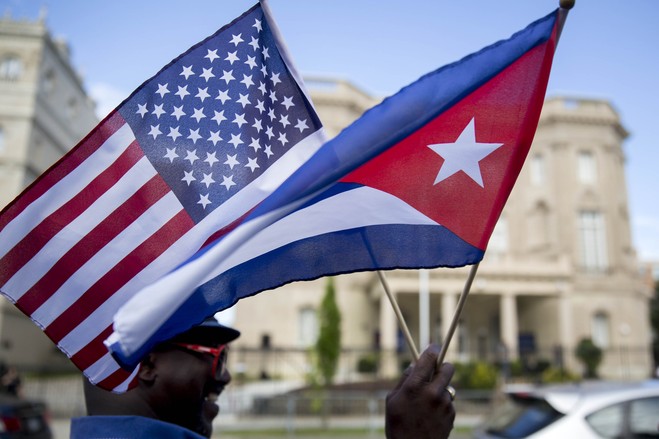
One year after reopening embassies, U.S.-Cuba relations progress
WASHINGTON, D.C. – Reopening embassies is just one example of how normalization has opened the door to progress in U.S.-Cuba relations.
In the last year, normalization has meant that thousands of Americans have met and learned from Cubans through people-to-people travel, while U.S. corporations continue to prove that it’s good business to seek deals in Cuba. President Obama has become the first sitting U.S. president in 88 years to visit the island, and American diplomats have worked alongside Cuban diplomats to begin resolving problems that went unsolved under the old policy.
For Cubans, this has meant more contact with Americans, greater job opportunities, increased access to the internet, and the chance to live lives with less tension. The full normalization of U.S.-Cuba relations will not address every problem that Cuba faces, and there is more to be done to put the old policy behind us. But the normalization process is really moving forward, and is advancing both our national interest and the interests of the Cuban people.
Sarah Stephens is the executive director of the Center for Democracy in the Americas (CDA). Since moving to Washington in 2000, Sarah’s work has focused mainly on securing the kinds of decisive changes in U.S.-Cuba policy implemented by President Obama in 2015.

